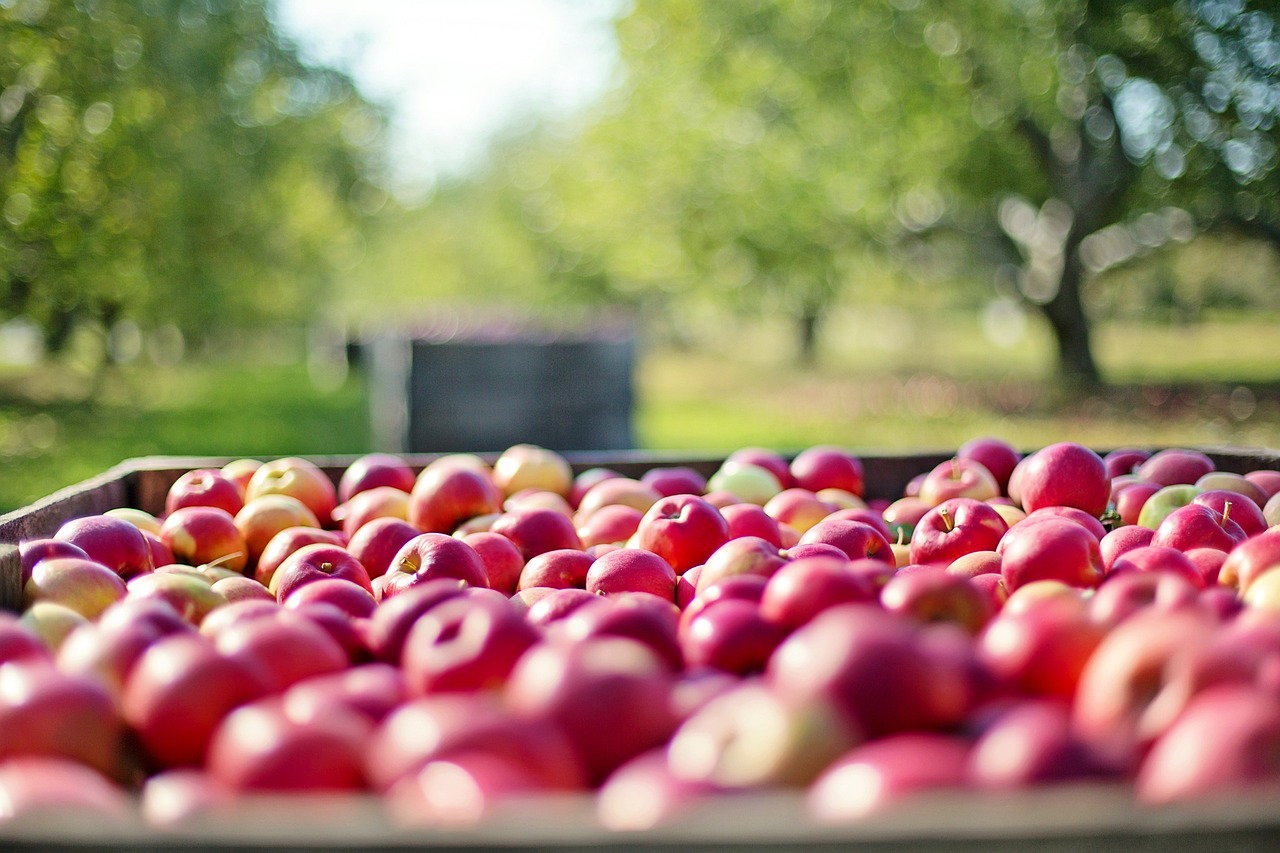Focus | Unfair trade practices in the agricultural and agri-food supply chain

- European instruments for balancing interests in the agri-food supply chain
The globalisation of food consumption and the intensification of trade on the international market have exacerbated issues related to the balancing of interests in the agri-food chain. The European legislator, indeed, underlining how in the agri-food and agricultural products market there are considerable unbalances in bargaining power between suppliers and buyers, has adopted, with Directive (EU) 2019/633, rules to contrast unfair commercial practices between companies in this specific sector.
Recital No. 9 of the aforementioned directive clearly states that the number and size of economic operators varies from one stage of the agricultural and food supply chain to another, and therefore it is believed that differences in bargaining power lead larger operators to impose unfair commercial practices on smaller operators, commercial behaviour that is detrimental in particular to SMEs. It is based on this analysis that the European legislator placed the substantial difference in economic size between the supplier and the purchaser of the agricultural product as an essential element for the application of this directive, introducing a ‘staggered mechanism’. According to the reasoning outlined above, the difference in the supplier’s and buyer’s turnovers, as rigidly set out in Article 1 of the Directive, is considered a sufficient manifestation of contractual unbalance.
It is also highlighted that Directive 2019/633 does not apply to B2C commercial contracts but only to B2B commercial agreements.
- The Transposition of the European Directive into Italian National Law
Notwithstanding the centrality and essentiality of the staggered mechanism for the application of Directive (EU) 2019/633, the Italian legislator, by virtue of the possibility, provided for in Article 9 of the directive, to maintain or introduce national rules that are stricter than the European discipline, decided not to make any distinction and to apply the discipline contained in Legislative Decree No. 198 of 8 November 2021 to the trade relations of the agri-food supply chain without requiring specific differences in economic size between supplier and buyer. Therefore, any entity operating in the agri-food sector and whatever its economic size, excluding direct consumers, is subject to such rules. Furthermore, with the adoption of Decree Law No. 69/2023 and subsequent conversion into Law No. 103/2023, the legislator modified the area of application of the regulations under consideration, extending it to foreign suppliers (no longer only those based in Italy), when the buyer is based in Italy.
The Italian legislation implementing the European Directive finds specific application with reference to the supply of agricultural products and foodstuffs, to be understood as those expressly listed in Annex I of the Treaty on the Functioning of the EU as well as products transformed for alimentary use from those on the aforementioned list. Furthermore, it provides in Article 3 (principles and essential elements of contracts of sale), Article 4 (unfair commercial practices) and Article 5 (other unfair commercial practices) for prohibited commercial practices, insofar as they are contrary to the principles of good faith and fair dealing and unilaterally imposed by a contracting party on its counterpart.
Article 3 provides that contracts for the transfer of agricultural and food products shall be drafted as follows:
- time of conclusion: such contracts must be concluded prior to the delivery of the products;
- form: requirement to conclude the contract in writing; transport or delivery documents, invoices and purchase orders are deemed suitable for this purpose, om the condition that the essential elements are agreed upon between supplier and purchaser by means of a written framework agreement;
- content: shall indicate the duration, quantity, product characteristics, price (fixed or criteria for determining it), mode of delivery and payment;
- duration: the contract may not be less than 12 months, unless a justified derogation is made.
Article 4 of Legislative Decree 198/2021 lists the practices that are considered unfair tout court:
- Contracts providing for delivery on a periodic schedule are prohibited from payment more than 60 days (30 in the case of perishable goods) from the established delivery period in which deliveries were made or from the date on which the amount to be paid was established;
- in contracts providing for delivery on a non-periodic schedule there is a prohibition of payment more than 60 days (30 days in the case of perishable goods) from delivery or from the date on which the amount to be paid was determined, whichever of the two dates is later;
- cancellation by the purchaser of orders of perishable goods with such short notice that the supplier cannot reasonably be expected to find alternative destinations for its goods (a notice period of less than thirty days must always be considered short)[1];
- unilateral modification of the supply conditions;
- the demand for payments by the purchaser that are not related to the sale of products, and payments for deterioration or loss of delivered products that occur on the purchaser’s premises;
- disclosure of supplier’s trade secrets;
- threats and commercial retaliation against the supplier when the latter exercises its contractual and legal rights (including when it files a complaint with the supervisory authority);
- refusal to confirm the contractual conditions in writing.
Article 4, paragraph 4, on the other hand, sets out the commercial practices that are considered prohibited only if they have not been previously agreed upon between the parties:
- the return of unsold products without payment for them and/or their disposal;
- requesting payment for storage, display, listing or making available on the market;
- requiring the supplier to bear the cost of discounts on products sold by the buyer as part of a promotion;
- the request to the supplier to pay the costs of advertising, marketing, carried out by the buyer in cases where it is clearly and specifically agreed that the supplier will pay for such activities. In such cases, however, an estimate of the costs must be provided to the buyer by the buyer.
Article 5 of Legislative Decree 231/2022 provides for further business practices – not provided for in Directive 2019/633, but already present in part in the “Cresci Italia” Decree (Decree-Law 1/2012) – which are to be considered prohibited:
- the direct or indirect imposition of unjustifiably onerous purchase, sales or other contractual conditions
- the application of objectively different conditions for equivalent services;
- making the conclusion, performance of contracts and continuity of business relations conditional on performance of services by contractors that have no connection with the contractual object;
- the obtaining of undue unilateral benefits, not justified by the nature or content of business relations;
- the adoption of any further unfair commercial conduct that is also unfair taking into account the commercial conditions of supply
- the imposition on one party of services and benefits additional to the main object of the supply;
- selling below the cost of production, except in the cases indicated in Article 7 of Legislative Decree No. 198/2021 (e.g. fresh and perishable products, unsold product at risk of perishing, planned business transactions agreed with the supplier in writing);
- The imposition, by the supplier, on the buyer:
- of contractual constraints for the maintenance of a given assortment;
- the inclusion of new products in the assortment;
- of privileged positions of certain products on the shelf or in the shop;
- The ICQRF as law enforcement authority and applicable sanctions
With the adoption of Legislative Decree No. 198/2021, Article 62 of Decree-Law No. 1 of 24 January 2012, which regulated trade relations in the sale of agricultural and agri-food products, was repealed. Such decree designated the Italian Competition Authority (“ICA”) as the authority responsible for the control and application of sanctions in the event of violation of the agri-food discipline specified therein.
The legislator, in harmonising national agri-food law, adopted a change of direction, designating the ICQRF (the Central Inspectorate for the protection of quality and fraud repression of agri-food products of the MIPAAF) as the sole national authority responsible for supervising the application of Legislative Decree 198/2021. The ICA has a residual control function for all those unfair commercial practices that do not fall within the perimeter of Directive (EU) 2019/633.
The ICQRF starts and conducts investigations on its own initiative or following a complaint. Dawn raidss are carried out, even unannounced, and purchasers and suppliers are requested to make available all necessary information and documentation in order to conduct the investigation.
If the ICQRF ascertains that the obligations and/or prohibitions provided for in Legislative Decree 198/2021 have been violated, unless the act constitutes a crime, an administrative fine shall be imposed, which may not be less than an amount between € 1,000.00 and € 30,000.00 depending on the violation and up to 3 – 5 % of the turnover achieved in the last financial year preceding the ascertainment.
According to the most recent report published by the Ministry of Agriculture, Food Sovereignty and Forestry on the work of the ICQRF For the fight against unfair trade practices, it can be seen that, during 2022, the ICQRF received No. 3 complaints submitted by interested parties and conducted No. 50 investigations on its own initiative. The product sectors most subject to inspections were the wine sector (the sector with the highest number of administrative sanctions applied), the oil sector, the dairy sector and the fruit and vegetable sector.
[1] Article 4, par. 2, letter c), as replaced by Art. 25, par. 2, letter b) of Decree Law n. 69 of 13 June 2023 (ratified by Law No. 103 of 10 August 2023).




